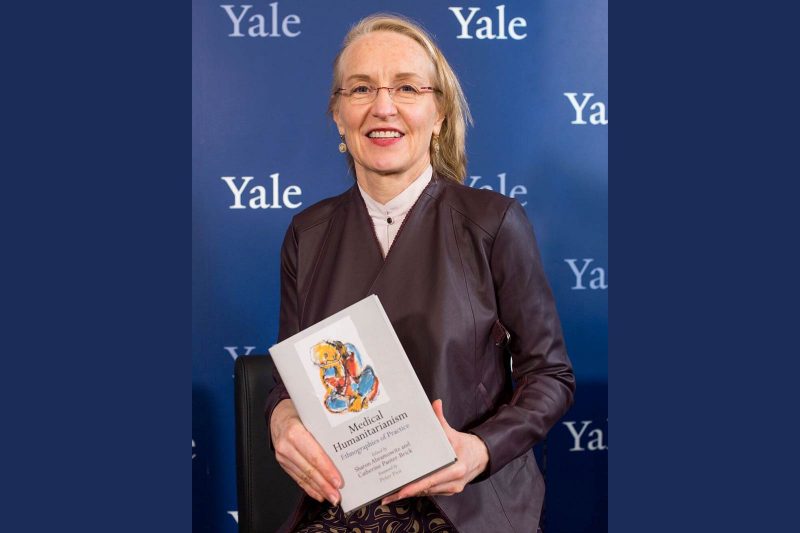The Jackson Institute will host a book launch reception on Wednesday, March 2, for “Medical Humanitarianism: Ethnographies of Practice” (2015), which was co-edited by Jackson faculty member Catherine Panter-Brick, professor of anthropology, health, and global affairs, and Sharon Abramowitz. The reception will be held at 5pm in the GM Room, Horchow Hall. It is open to the Jackson community and invited guests.
Dr. Rima Salah (United Nations High Level Panel on Peace Operations) and Dr. Unni Karunakara (former president of MSF and Jackson Senior Fellow) will offer brief remarks on the book.
About the Book:
The volume includes 12 case studies inviting deep reflection on humanitarian research and humanitarian practice.
“What happens when humanitarian intentions collide with the realities of humanitarian action? The editors present 12 engaging and provocative ethnographies of humanitarian practice, that invite immersion, deep reflection, and call for constructive dialogue between scholarship and humanitarian practice,” writes Unni Karunakara, Jackson Institute Senior Fellow and former international president of Médecins Sans Frontières / Doctors Without Borders.
Contributors offer vivid and often dramatic insights into the experiences of local humanitarian workers in the Afghan-Pakistan border areas, national doctors coping with influxes of foreign humanitarian volunteers in Haiti, military doctors working for the British Army in Iraq and Afghanistan, and human rights-oriented volunteers within the Israeli medical bureaucracy. They analyze our contested understanding of lethal violence in Darfur, food crises responses in Niger, humanitarian knowledge in Ugandan IDP camps, and humanitarian departures in Liberia. They depict the local dynamics of healthcare delivery work to alleviate human suffering in Somali areas of Ethiopia, the emergency metaphors of global health campaigns from Ghana to war-torn Sudan, the fraught negotiations of humanitarians with strong state institutions in Indonesia, and the ambiguous character of research ethics espoused by missions in Sierra Leone.
